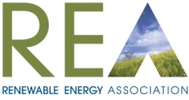News Release from Renewable Energy Association (REA)
Wind Industry Profile of
Brexit Deal and Energy – in Summary
This text was written by the Association for Renewable Energy and Clean Technology (REA).
The briefing firstly provides an overview of the Energy Chapter, before going on to look at wider issues that could affect business operations. The REA is keen to understand the impacts of the deal, whether negative or positive, as they arise, so please do let us know of any issues.
Summary of Agreement for Energy
Firstly, it is positive to see that the trade deal chapter on Energy has a welcome emphasis on climate, with both parties committing to adhere to the 2015 Paris Agreement, which if reneged upon could see the aspects of the deal suspended. This provides a strong foundation for continuing climate action on both sides.
Overall, the Energy Chapter of the deal means that both parties have agreed:
- To maintain their own energy and climate policies but commit to working together where it is mutually beneficial.
- Shared principles for energy market regulation which includes fair competition and non-discrimination, and commitment to operating separate independent regulatory authorities.
- Continued cooperation on nuclear power, including the safe movement of materials, equipment, and waste. As well as the UK remaining part of nuclear research programs.
- The new arrangements and areas of cooperation will be overseen by the Specialised Committee on Energy, this will help coordinate cooperation on network regulation, development, security of supply and addressing market abuse.
- The UK and EU have agreed to enhance cooperation on renewable energy, especially around the offshore wind in the North Sea. Helping facilitate the development of hybrid projects that combine interconnectors, offshore windfarms, and potential for a North Sea grid.
- The Parties agree that they shall not weaken or reduce, in a manner affecting trade or investment between parties, their environmental or climate levels of protection (k.a non-regression clause) below that at the end of the transition period.
- If one party believes the other has made changes to its environmental and climate standards that would lead to an unfair competitive advantage, there are provisions for parties to take countermeasures (such as imposing duties).
Not yet covered by the agreement, allowing for further talks:
- The UK will, in the immediate term, continue to have access to the EU Internal Energy Market (power and gas), although the exact trading arrangement is still to be worked out. Previously developed alternative arrangements will come into place while the new model for electricity trading across interconnectors is developed. The EU and UK have until 2026 to decide how to optimise trade over interconnectors, after which the arrangement agreed in the FTA will come to an end unless extended.
- The Agreement states that both parties commit to maintaining effective carbon pricing systems. The agreement states that the parties will continue to cooperate on Carbon pricing and give “Serious Consideration” to linking respective systems – but there is no definitive commitment to do so or timescale for when such discussions will happen.
Agreement in place until the 30th June 2026
- The arrangements detailed in the FTA are stated to last until the 30th June 2026, after which there will be annual negotiations on the continuation of applying the energy chapter.
- It has been noted that this is the same date that the adjustment for Fishing within the FTA also come to an end. As such, there has been speculation that there is a level of pollical linkage between the two sections of the agreement, with the failure to agree on fishing rights resulting in a block future energy agreements. This is an interesting dynamic that will need to be monitored.
Further Areas of the Deal Relevant to Members
Professional Services and Qualifications
The UK and EU FTA takes the EU-Canada agreement as its basis on Services. The FTA Agrees to make commitments on markets access for services, prohibits discrimination between different nationals and avoids requirements for local presence.
However, this is subject to member state and industry-specific exemptions which are listed in the FTA annexes. This may mean each industry needs to check its ability to provide services in each separate member state they are active.
Services will also be subject to the most-favoured-nation clause, meaning that if more favourable terms are provided to another country in another FTA then that is automatically extended to the other party
There is no mutual recognition of professional qualifications, but the Agreement sets up a framework for getting Mutual Recognition of Professional Qualifications (MRQPs). As such, this is a process by which regulators and trade bodies can work to get mutual recognition on a sector basis, but no new qualification is recognised on day one. A business operating in Europe, therefore, needs to check the status of required qualifications, or even able to work, in individual members states to see what is required to provide the relevant service in that jurisdiction.
On financial services, the parties have agreed to a non-binding deceleration to establish a framework for regulatory co-operation and carve-out for prudential measures.
Travel and Business Trips
Short term visa-free business trips between the UK and EU are agreed but limited to 90 days in any 180-day period.
Work trips for intra-company transfers, the fulfilment of contract services no longer then 12-months and self-employed professionals are all allowed. Beyond this individual member states may have different lists of permitted activities and visa requirements.
Secondments will be possible for up to 3 years for managers and specialists and 1 year for trainees.
Businesses, and individuals, will need to keep track of how long their staff spend in a member state and ensure they are within any relevant time constraints.
Tariffs, Quotas and Rules of Origin
The ambitious joint target of an FTA with zero-tariffs and zero-quotas has been achieved, for UK and EU products being traded between the two markets. To meet the zero-tariff requirements, products must meet the required Rules of Origin. These vary for different products. For many products, the requirement is that the product has undergone sufficient UK manufacturing to cause a Change in Tariff Heading OR that 50% of the ex-works value of the product is sourced in the UK market. In addition, bilateral cumulation applies so that UK and EU content will both be treated as ‘home’ content. No extended cumulation was agreed to cover e.g. Japanese content.
For UK-EU trade, until 31 December 2021, businesses do not need supplier’s declarations from business suppliers in place when the goods are exported. Businesses may be asked to retrospectively provide a supplier’s declaration after this date.
A claim can alternatively be made after importation provided it is made within 3 years of the date of importation and accompanied with a valid proof of origin. In those circumstances, any duties would be repaid to the importer.
A Statement on Origin may be made out before, at the same time as, or after the products to which it relates are exported. For imports to the UK, it will be valid for two years from the date it was made out. For exports to the EU, it will be valid for 12 months (See EURIS Taskforce Note For Further Information).
Rules of Origin on Electric Vehicles
Electric vehicles have been provided with a transition phase for Rules of Origin and will be tariff-free if they contain at least 40% originating content until the end of 2023 and at least 55% until the end of 2026.
From 2027, that could be reduced if both sides agreed to review the final level in four years. Those talks will cover the availability of “sufficient and suitable originating materials” along with the “balance between supply and demand,” according to the text.
Data Transfers
There is a joint ambition for a data adequacy decision from the EU to allow for the free flow of data between the EU and UK on the same terms as with an EU member state. To allow for this, a period of up to 6 months from 1st January 2021 has been agreed during which transfer of data from EU to UK will not be subject to any additional restrictions. The adequacy decision is not guaranteed so action to agree Standard Contractual Clauses (SCCs) with EU suppliers and customers is still advisable.
State Aid and Subsidies
Broad overarching commitments and common principles on subsidy control have been agreed by the Parties, including that subsides should only be used to pursue a specific public policy objective (such as climate change).
However, the UK now need to establish its court or tribunal body that will be independently responsible for hearing subsidy cases. The parties also have powers to impose remedial measures (tariffs) if they believe a subsidy has breached the shared principles and leads to an unfair market advantage following a challenge through a arbitration panel and following attempts to resolves disputes through consultation first.
Rebalancing Mechanism for the Level Playing Field
To handle any potential future divergence in trading arrangements of standards the FTA does allow the parties to negotiate and update the agreement after four years. This could see a review of the FTA agreement, and partially see the trade parts of the FTA suspended if negotiations fail after a year.
An Arbitration panel shall be used to investigate claims of significant divergences that could impact trade or the level playing fields. During this time either party can impose tariffs. Unless the arbitration body responds in 30 days the party subject to tariffs can respond with countermeasures. If the offending party is proven to breach the agreement they will then need to retract any imposed tariffs.
Standards
There are some substantial points in the deal covering mutual recognition of standards,. But while this deal goes beyond World Trade Organization rules on standards in some areas, there will be considerable non-tariff barriers for many industries. There are areas, such as chemical regulation and data sharing, where the deal falls of collaboration. For example the U.K. will lose its access to the EU’s REACH database for chemicals from 2021.
Specific Standards for the Waste Industry
The Industrial Emissions Best Available Technique (BAT)
Defra have published guidance on how the BAT regime will work following the end of the transition period. The UK government has made secondary legislation to ensure the existing BAT Conclusions continue to affect the UK, to provide powers to adopt future BAT Conclusions in the UK and ensure the devolved administrations maintain powers to determine BAT through their regulatory regimes. More info here.
Imminent Basel Convention Amendments for B3011 Plastic Exports
On 1 January 2021 amendments to the international Basel Convention governing the movement of certain wastes come into force. The amendments apply stricter controls to the international trade in waste plastics in light of the global focus on their environmental impact. More details here for shipping waste plastic for recovery in OECD and non-OECD countries.
SEPA guidance on the Basel Convention Amendments on the export of plastic waste
SEPA have published new guidance that came into effect on 1st January 2021. The Basel Convention on the control of Transboundary Movement of Hazardous wastes is the international convention that governs the movement of hazardous waste. On 1 January 2021, new entries to Annexes II, VIII and IX of the Basel Convention became effective. These amendments will strengthen the controls for the export of plastic wastes. More details here.
Further Resources
The following links may also be used to find further information and indeed provided valuable input to inform the above:
- Source:
- REA
- Author:
- Press Office
- Link:
- www.r-e-a.net/...
- Keywords:
- Brexit, Copernicus, Dispute resolution, electric vehicles, energy, Euratom, Goods, Horizon 2020, Interconnector Links, Labour mobility, Professional services, R&D, Rules of Origin, Science, Services, standards, State aid, Visa


























